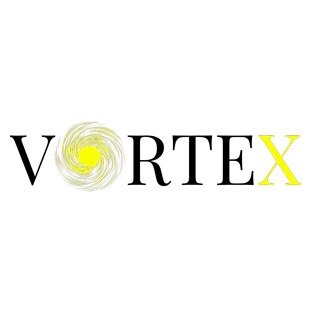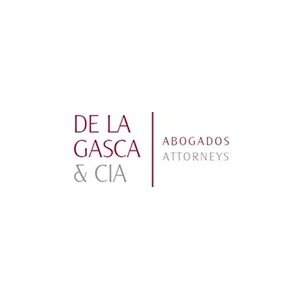Best Energy Regulatory Law Lawyers in El Salvador
Share your needs with us, get contacted by law firms.
Free. Takes 2 min.
Or refine your search by selecting a city:
List of the best lawyers in El Salvador
About Energy Regulatory Law in El Salvador
Energy Regulatory Law in El Salvador encompasses the legal framework that governs the production, distribution, and commercialization of energy resources within the country. This field focuses particularly on electricity, hydrocarbons, and renewable energies. It addresses issues such as licensing, tariffs, environmental compliance, consumer rights, and market competition. Regulatory bodies, mainly the Superintendence of Electricity and Telecommunications (SIGET) and the National Energy Council (CNE), play a crucial role in enforcing these regulations to ensure a reliable, efficient, and sustainable energy sector.
Why You May Need a Lawyer
An experienced lawyer in Energy Regulatory Law can help navigate complex regulations and resolve issues that individuals or companies may face. Common situations when legal advice is beneficial include:
- Applying for permits or concessions for energy projects
- Negotiating power purchase agreements or energy contracts
- Complying with environmental and safety standards
- Disputes over tariffs, billing, or electricity quality
- Challenging regulatory decisions or fines imposed by authorities
- Understanding obligations around renewable energy projects
- Managing land use and property issues related to energy infrastructure
- Ensuring compliance with local and international investment regulations
Given the technical and legal complexity of the sector, specialized legal advice can prevent costly mistakes, protect your rights, and facilitate successful project outcomes.
Local Laws Overview
The core of Energy Regulatory Law in El Salvador is defined by several key statutes and regulations:
- General Electricity Law: Regulates the generation, transmission, distribution, and commercialization of electricity. It sets requirements for market operation, establishes consumer rights, and outlines obligations for energy providers.
- Hydrocarbons Law: Governs the import, storage, distribution, and sale of hydrocarbons like fuel and natural gas. It sets quality standards and licensing requirements.
- Renewable Energy Incentives Law: Offers tax incentives and support for solar, wind, hydro, and geothermal projects to promote investment and sustainability.
- Environmental Regulations: Oversee the environmental impact of energy projects, requiring permits and compliance with sustainability goals.
- Role of SIGET and CNE: These agencies supervise licensing, monitor compliance, set tariffs, handle consumer complaints, and implement policy initiatives aiming at market development and technological advances.
Staying updated with these laws and respecting the evolving standards is vital for both companies and individuals engaged in the energy sector.
Frequently Asked Questions
What permits or licenses are needed to start an electricity generation project?
You generally need a generation license from SIGET, environmental permits, and depending on the size, possibly other municipal permissions.
How are electricity tariffs regulated in El Salvador?
Tariffs are set and reviewed by SIGET based on cost structures and market conditions, balancing company sustainability with consumer protection.
Who regulates the energy sector in El Salvador?
The main regulators are SIGET (Superintendence of Electricity and Telecommunications) and the National Energy Council (CNE).
Are there incentives for investing in renewable energy projects?
Yes, investors may access tax exemptions, preferential import duties, and expedited permitting for qualified renewable energy projects.
What legal protections exist for energy consumers?
Consumers are protected by rights to fair and transparent billing, reliable service, and mechanisms for dispute resolution through SIGET.
How can I challenge a fine or sanction from SIGET?
You may file an administrative appeal within the deadlines set by law or, if needed, pursue judicial review with the help of a lawyer.
Do foreign companies face specific restrictions in the energy sector?
While foreign investment is encouraged, projects must comply with local laws on permits, environmental impact, and may face specific requirements depending on public interest.
What are the main environmental obligations for energy projects?
Projects must conduct environmental impact assessments, secure proper permits, and adopt mitigation measures for any adverse effects.
How are disputes about energy contracts resolved?
Disputes are typically governed by contract terms which may provide for local or international arbitration or litigation in local courts.
Is distributed generation (such as solar panels for homes) regulated?
Yes, there are guidelines for self-generation and possible net metering, and permits from SIGET may be required depending on project size.
Additional Resources
If you need information or potential legal assistance, these resources may be helpful:
- Superintendencia de Electricidad y Telecomunicaciones (SIGET): Main regulatory authority for electricity markets, licensing, inspections, consumer complaints, and tariff information.
- Consejo Nacional de Energía (CNE): Policy-making institution overseeing sector planning, sustainable energy strategies, and renewable incentives.
- Ministry of Environment and Natural Resources (MARN): Responsible for environmental permitting and oversight of energy project impacts.
- Chamber of Commerce and Industry of El Salvador: Offers advice and workshops relevant to investors in the energy sector.
- Legal information platforms: Providing access to official laws and regulatory updates relevant to the energy sector.
Next Steps
If you believe you require legal advice regarding Energy Regulatory Law in El Salvador, consider taking the following actions:
- Identify the specific nature of your legal question or concern within the energy sector.
- Gather relevant documentation such as contracts, permits, and correspondence with regulatory bodies.
- Consult with a lawyer specializing in energy regulation who is familiar with both local legal requirements and administrative procedures.
- If your issue involves government authorities or significant investment, timely legal counsel is essential to safeguard your interests and ensure compliance.
- Contact regulatory bodies for initial guidance or clarification before proceeding with formal requests or appeals.
Taking the above steps can provide clarity, reduce risk, and help you achieve your goals while complying with El Salvador’s energy regulatory framework.
Lawzana helps you find the best lawyers and law firms in El Salvador through a curated and pre-screened list of qualified legal professionals. Our platform offers rankings and detailed profiles of attorneys and law firms, allowing you to compare based on practice areas, including Energy Regulatory Law, experience, and client feedback.
Each profile includes a description of the firm's areas of practice, client reviews, team members and partners, year of establishment, spoken languages, office locations, contact information, social media presence, and any published articles or resources. Most firms on our platform speak English and are experienced in both local and international legal matters.
Get a quote from top-rated law firms in El Salvador — quickly, securely, and without unnecessary hassle.
Disclaimer:
The information provided on this page is for general informational purposes only and does not constitute legal advice. While we strive to ensure the accuracy and relevance of the content, legal information may change over time, and interpretations of the law can vary. You should always consult with a qualified legal professional for advice specific to your situation.
We disclaim all liability for actions taken or not taken based on the content of this page. If you believe any information is incorrect or outdated, please contact us, and we will review and update it where appropriate.
Browse energy regulatory law law firms by city in El Salvador
Refine your search by selecting a city.













